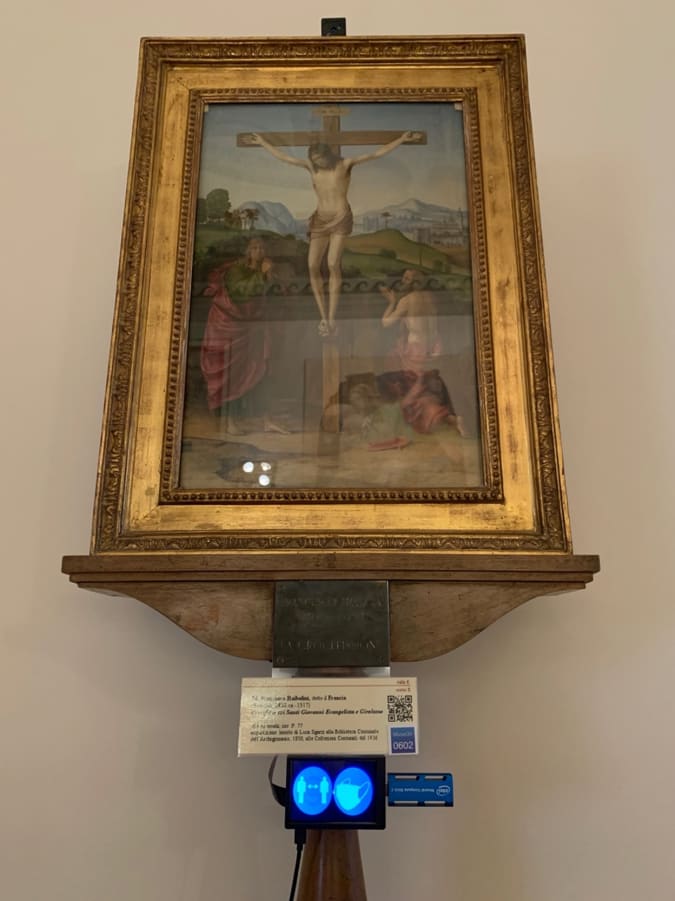A museum in Bologna, Italy, uses cameras and big data to determine where viewers of works of art tend to focus their attention.
For the first time in perhaps 2,300 years of museum history, visitors are being viewed rather than (just) the artworks being exhibited. The ‘Collezioni comunali d’arte’, a municipal museum in the Italian city of Bologna, is conducting a test to observe how visitors view works of art.
Cameras have been installed next to more than twenty paintings that are directed towards the visitor’s face. With the help of artificial intelligence, the camera detects, among other things, where the visitors’ attention is focused most on a work of art.
Gauging experience
The innovative system can ‘gauge’ the visitor’s experience by sharing numerous data obtained through registering and monitoring certain indicators. This measurement is made possible by using a typical ‘big data’ application that is able to extract information by examining large amounts of various data. ENEA does not offer more details about this interesting experiment. ENEA is an Italian government institute specializing in new technologies and sustainable economic development.
State of Mind
“Through a camera placed near the artwork, the system automatically detects the faces that are turned towards the work. Data is collected on the behaviour of the visitors, such as the route taken to get to the area, the distance that they are viewing from as well as the state of mind of those viewing the art,” a few scientists explain in a presentation.
The makers revealed a few details about the results so far. For example, the oil painting of Saint Sebastian tended by Saint Irene by the French artist Trophime Bigot (who painted in the style of Caravaggio) shows that visitors do not look at the centre of the composition as is customary. Most people look slightly to the right of Saint Sebastian’s face, thanks to the play of light and shadows created by the artist’s brush.
Technopole
The collaboration between ENEA and the Istituzione Bologna Musei, which all municipal museums fall under, is part of the research project on big data in the Emilia-Romagna region. The Big Data Technopole of Bologna, as the hub is called, aims to become an internationally authoritative center in the field of supercomputing and artificial intelligence.
This article has been published from the source link without modifications to the text. Only the headline has been changed.
Source link




